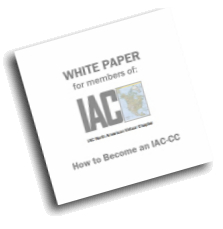 The Principles of Attraction, as well as the Qualities of Attraction, will help you attract more of what you want, more easily and quickly.
The Principles of Attraction, as well as the Qualities of Attraction, will help you attract more of what you want, more easily and quickly.
In 1998, Thomas Leonard, the Founder of Coaching, wrote an online draft of his future book, The Portable Coach, about the 28 Principles of Attraction. He made the draft free to use by anyone. A leader in many ways, Thomas was 'blogging' and using the Creative Commons approach to attraction, even before they were invented. His material is still as fresh and 'new' as ever.
In 2006, I created a popular 10-week ecourse based on this early draft, typos and all, with a brief introduction to each section.
Here's one of the 10 lessons, on the Qualities of Attraction. You can develp these qualities by implementing the Principles. On the flip side, you can integrate the Attraction Principles more easily/quickly by developing more of these Qualities.
This list makes the Principles of Attraction instantly more understandable. Do you have enough of these qualities to create a Reserve of Attraction? Which Principles will help you develop more of the qualities you'd like to increase? - Julia
The Qualities of Attraction
by Thomas J. Leonard
This is a list of the 20 qualities of a person who has mastered the Attraction Operating System. If you focus on developing these qualities concurrent with your learning of the Attraction Principles, you'll find that these qualities accelerate the integration process.
1. Generous.
Because you can easily afford to be.
2. Integrous.
Because you are whole and the circle is complete.
3. Loving.
Because there is a marked absence of fear.
4. Compassionate.
Because you've been there even if you haven't.
5. Balanced.
Because there is nothing left to juggle.
6. Articulate.
Because life is so very simple.
7. Respectful.
Because every one is special.
8. Positive.
Because it wouldn't occur to you to be negative.
9. Secure.
Because you have a strong reserve in every area and eliminated the primary threats.
10. Aware.
Because you have learned to see clearly and feel everything.
11. Flexible.
Because there is no weight and you are in the flow.
12. Willing.
Because there is nothing to lose.
13. Resourceful.
Because you've learned where to get exactly what you need to be your best.
14. Interdevelopmental.
Because learning is continuous and people are the best teachers.
15. Initiating.
Because waiting no longer appeals.
16. Light-hearted.
Because life isn't something to win at.
17. Creative.
Because you feel free to express yourself and have something to say.
18. Forthright.
Because truth is everything and honesty is natural.
19. Collaborative.
Because it's more fulfilling than competing or protecting.
20. Genuine.
Because there is nothing left to prove and all that's left is you.
Copyright 1998 by Thomas J. Leonard.
Want the free 10-week ecoures? Click below:








 About ten years ago, when I was becoming a coach, Thomas J Leonard, the founder of the coaching profession said...
About ten years ago, when I was becoming a coach, Thomas J Leonard, the founder of the coaching profession said...

 While researching "distinctions", an important coaching tool, for a recent class at the
While researching "distinctions", an important coaching tool, for a recent class at the 
